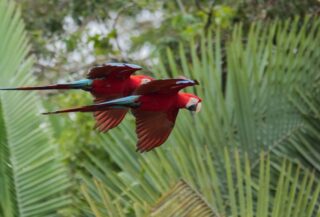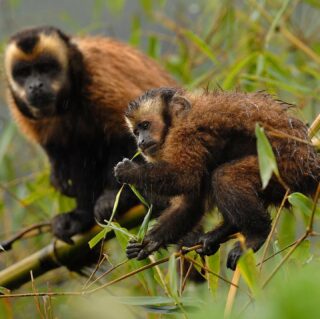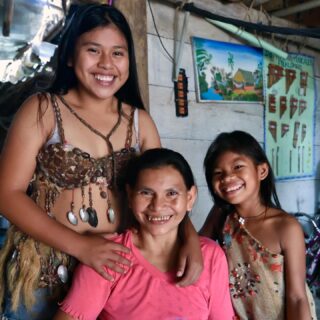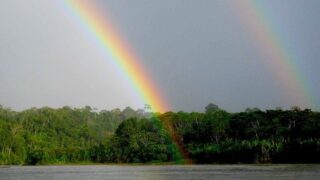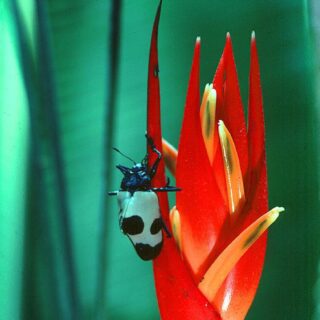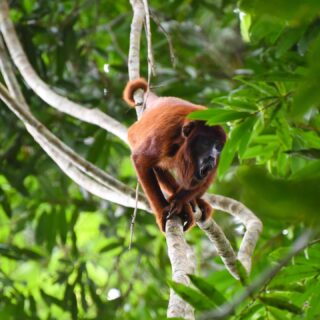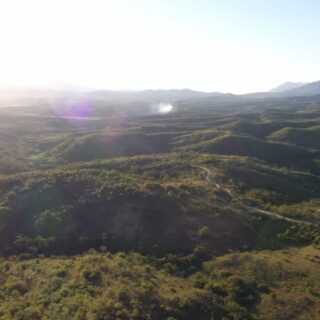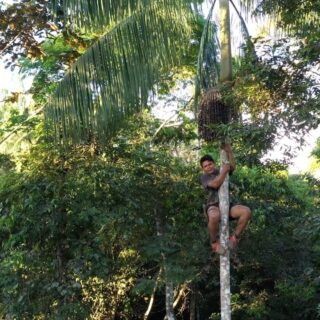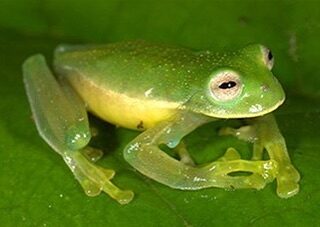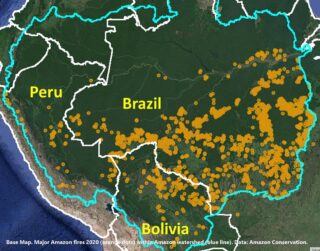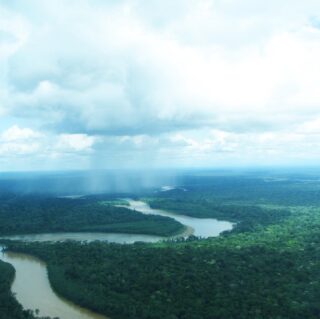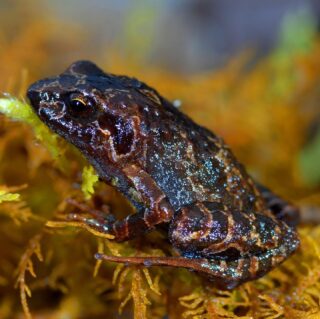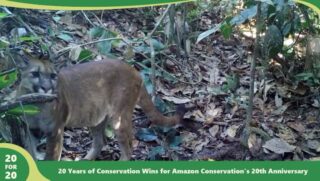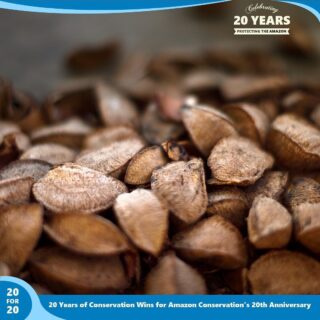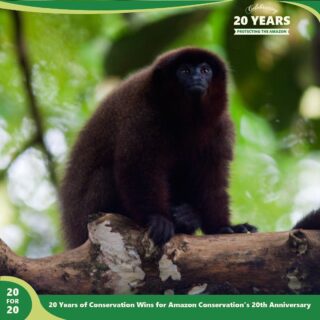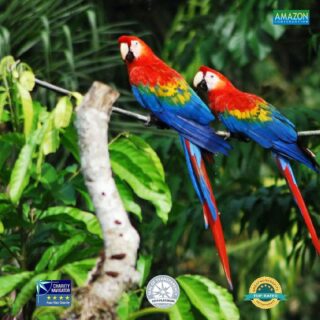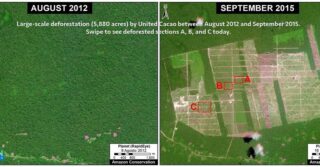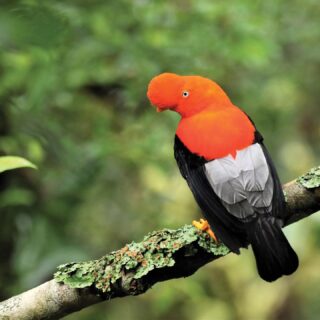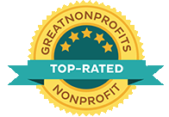Supporter Spotlight: Long-Time Donors Challenge Us and Encourage Our Growth
July 29, 2022
It may sound cliché to say our long-term supporters are the backbone that keeps Amazon Conservation learning and growing, but it’s true. When couple Elizabeth Cadwalader and Gene Baron first reached out to donate to our organization in 2012, they wanted to donate stock and at the time our organization wasn’t sure how or if we could receive a stock donation. Thanks to Elizabeth and Gene’s encouragement and patience, Amazon Conservation was able to set up the necessary systems to accept stock donations. Supporters like them have been crucial in encouraging our growth and expansion – whether it’s donation methods or programs — over the years and have thus been a large factor in our success.
What was it about our organization that made Elizabeth and Gene believe in our mission so strongly that they were willing to work with us through the whole process of setting up stock accounts with us? In a recent chat, they told us that it was our on-the-ground presence in the Amazon and our record of following up on projects to ensure their effectiveness that convinced them. Since their first stock donation, they have been sustaining supporters because they appreciate Amazon Conservation’s work that works alongside – not against – governments and businesses to achieve the best result for all. Read more about our talk with Elizabeth and Gene below.
Learn more about all the ways you can donate, including stock, DAFs, QCDs, estate gifts, and cryptocurrency, at the bottom of our donate page.
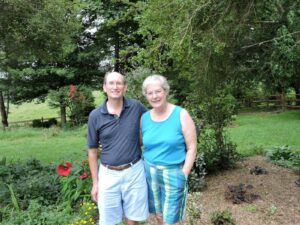
Can you tell us a little more background about you?
Elizabeth: I grew up in Baltimore, traveled around the country and some of the world for about 11 years, and then came back to Baltimore to visit for a summer, and then I met Gene and here I am!
I had spent 3 years as a [AmeriCorps] VISTA volunteer, and I got very interested in teaching English as a second language. I spent a few years in Mexico under the mistaken impression that I needed to know Spanish for that, which I didn’t. I had majored in French in college, so I was very interested in languages and other countries and cultures. For the last 21 years I’ve been a painter, which is what I do now. One of your former employees actually bought one of my paintings – that was nice!
Gene: For my background, I’ve always been in Baltimore, born and raised here, except for a couple of years while at grad school. I was a music major in school, and I played what I would call semi-professionally while in college and after, then I worked in record stores in Baltimore for 8 or 9 years. Then in 1985 I went back to school to learn how to do mainframe programming. Starting in early 1986, I went to work for McCormick & Co., headquartered just north of Baltimore, and I worked for them doing various IT-related things for about 30 years. In 2015, I retired, and I got back into music. For the past few years, I have played the hammered dulcimer, which is a lovely instrument. Other than that, I’ve been taking care of things around the house and trying to travel a bunch.
Like Elizabeth, I have an interest in other cultures and languages. I was a very active international folk dancer for thirty years – mostly line and circle dancing from Eastern Europe, along with a smattering of other areas too. Actually, what I studied was ethnomusicology – studying music and cultures of the world. So our interest in other parts of the world is very strong for both of us.
What initially inspired you to support environmental causes generally and to help conserve the Amazon rainforest more specifically?
Elizabeth: I think the motivation was more reading about, first of all, how important the Amazon is, the oxygen, and all the different animal species, the people who live there, and reading all of the terrible things happening there – burning and cutting it down. I think the first thing I recall reading about was, Gee, they’re cutting this down to have more cattle so that we can all have cheap hamburgers. So we went on Charity Navigator and looked for someone that was working in the Amazon.
How did you initially learn about Amazon Conservation?
Elizabeth: After reading about the terrible things happening there, we went on Charity Navigator and that’s where we found you. I think before that, we really had only given $25 here or there, but didn’t really have the resources to do a lot. But I had some appreciated stock that had an unbelievably low cost basis, so we thought why don’t we donate stock. I remember that, because you had never gotten it before and it was a bit of a big thing to get that set up with a bank and get an account set up so that you could do it.
Once we decide on something – we give to a spectrum of charities, we have various ones in different areas, and then once we have our list, unless something stops working, unless a charity is no longer doing what we thought or hoped it would do, we keep on because I think you need to sustain what you started.
Why did you choose to support Amazon Conservation? What makes Amazon Conservation special to you?
Gene: Something else we look for in charities, like we’ve seen in a few cases where other excellent charities in, for example, Africa, but then there’s no real follow up. Like if they put in wells for people, they don’t come back to check that the wells are still going 5 to 6 to 10 weeks later. We look for an established charity that’s got a presence there and that is going to remain.
Elizabeth: Another thing we really appreciate with Amazon Conservation is everyone has really been friendly and made it feel like we’re a part of it. You can give to some organizations, and you basically just get your thank you note, and that’s it. But we feel like “part of the family”.
Do you have a favorite program or initiative that stands out to you?
Gene: I would say 2 things, and they’re the major things that you’re working on. One is all of the things that you’re doing to stop deforestation. What I didn’t know as much about, which I learned at the last event in Washington, DC, was the science and technology to track illegal logging and things like that, which it seems is the best way to do that. I really appreciate that!
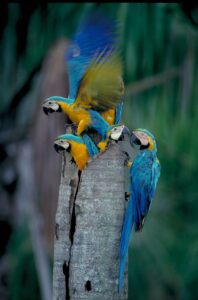 Elizabeth: You also mentioned, which I also remember from Mr. [Bruce] Babbitt’s talk about 8 or 10 years ago, how well you work with companies so that they can do business and find ways to do it without destroying everything.
Elizabeth: You also mentioned, which I also remember from Mr. [Bruce] Babbitt’s talk about 8 or 10 years ago, how well you work with companies so that they can do business and find ways to do it without destroying everything.
Gene: The example that I remember was where a natural gas platform was constructed solely by helicopter, airborne, so no one had to cut down forest to build access roads and things like that. It’s an Impressive way to do that. Years ago, if you just went right up against the government and large companies, you certainly would lose. So trying to work collaboratively, where possible, to get what you want while they also get what they want as much as possible.
Elizabeth: We also really liked those Luci Lights, so that people who couldn’t get electricity could still have solar light. You were really helping families and communities. Also, we have a son who is 34, so of course we are thinking about the future world and what will be still around.
Gene: That also means we want to see more political pressure in that part of the world, as [thinking about the future] just makes this work a more urgent matter.
Do you have anything else to add that you’d like people to know about our work in the Amazon?
Gene: Keep doing what you’re doing! Keep awareness up of how incredibly diverse and how important that part of the world is, with all the different animal species. It’s important for everyone to know that.
Elizabeth: I do try to tell people about it, to share things on social media. I think people aren’t as aware as they should be about how diverse with so many different species and how many are endangered and also the various people who live there who are being crowded out and their whole way of life is being threatened. I think it’s really interesting that even when they know that they could live in the “modern world”, they don’t want to.
And also – GIVE your stock to the Amazon! Then you won’t have to pay capital gains tax!
Learn more about all the ways you can donate, including stock, DAFs, QCDs, estate gifts, and cryptocurrency, at the bottom of our donate page.

